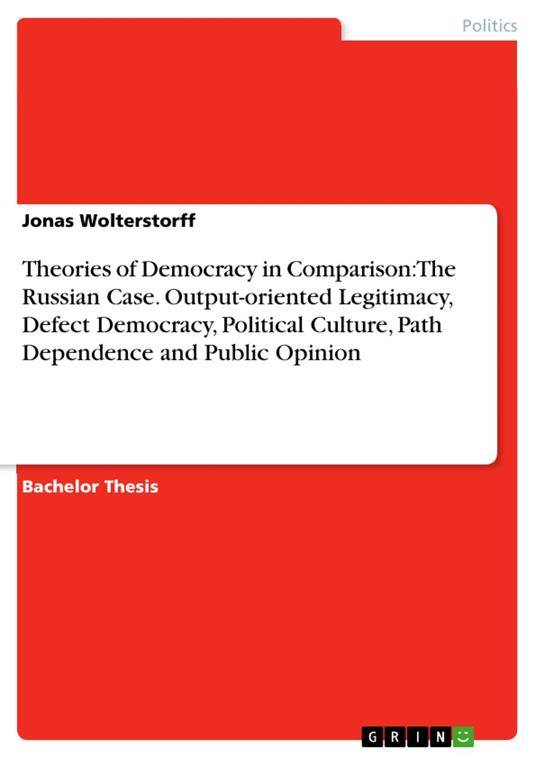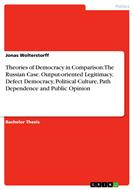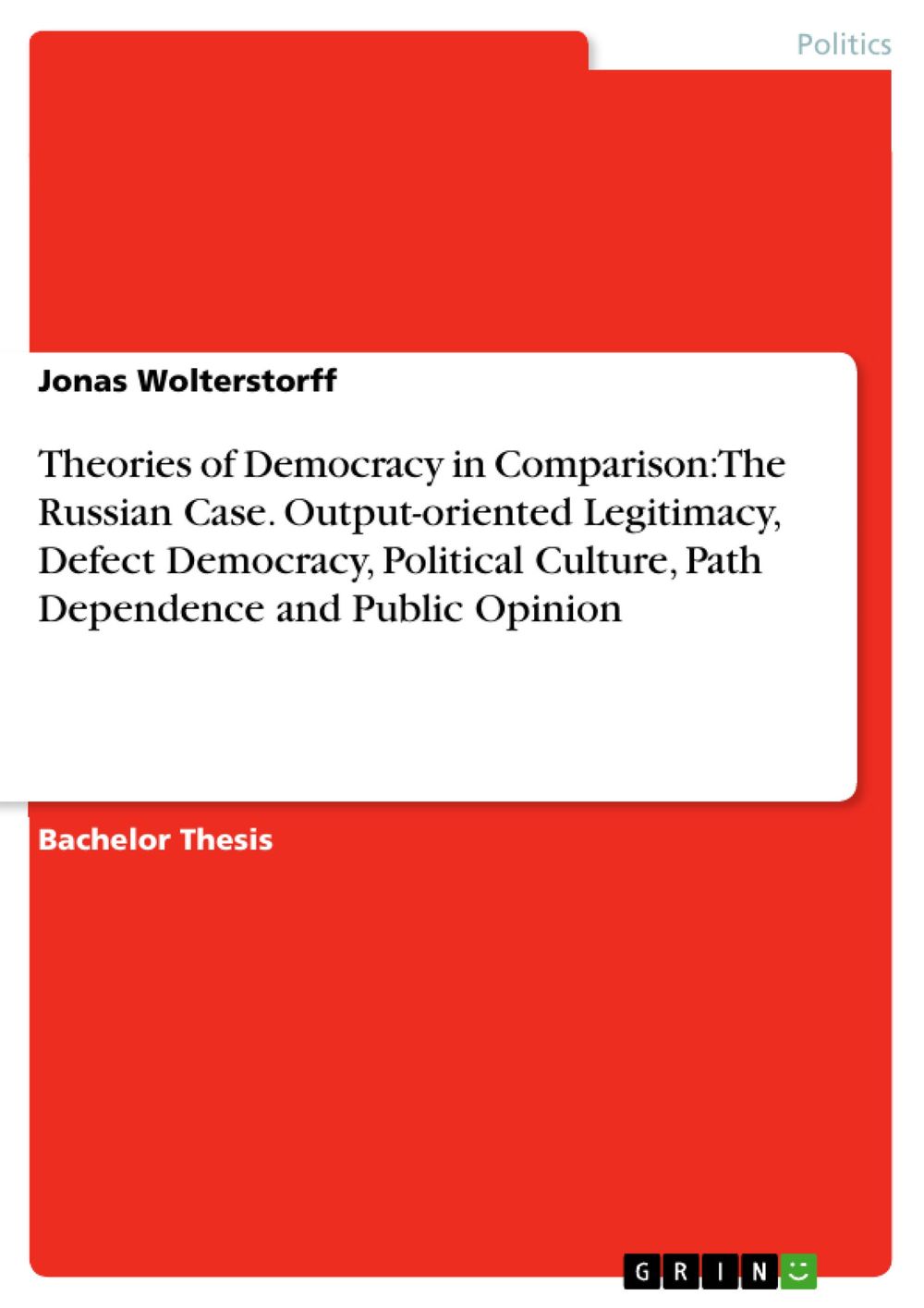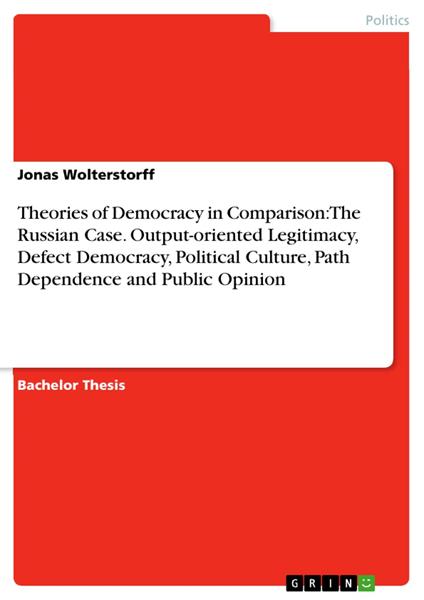Theories of Democracy in Comparison: The Russian Case. Output-oriented Legitimacy, Defect Democracy, Political Culture, Path Dependence and Public Opinion
Bachelor Thesis from the year 2013 in the subject Politics - Region: Russia, grade: 1,3, Otto-von-Guericke-University Magdeburg (Institute for Political Sciences), course: Theories of Democracy, language: English, abstract: Russia is an enigma. In the western hemisphere, respectively the countries of the European Union and USA, it produces a lot of suspicion and resentments. Its vast spatial dimensions, in terms of size; its controversial history and its stubborn focus on sovereignty, when it comes to foreign policy and the international community, are the most prominent sources for difficulties of understanding. In addition, the Russian people liketo sustain a hint of mystery themselves, in claiming that no other nationality can understand them. Apart from stereotypes and prejudices about typical Russian people and characteristics, there are a handful of assumptions one encounters that cling to public opinion about Russia’s political landscape: (1) Political opposition does not exist, civic opposition is marginalised. (2) The independence of the judiciary system is a façade and de facto does not effectively monitor the executive. (3) The Soviet imprint on Russian people led to a mentality of subordination, inflexibility and obedience to any kind of authority. (4) The Russian media are corrupted and controlled by the Kremlin. (5) Putin only won the election due to massive vote manipulation. In line with the mentioned assumptions, Western media coverage tends to be polemic and jaundiced. As Russia is perceived as a watchdog of Sovereignty in the international community and in that sense with a tendency to veto humanitarian missions , criticism is very easily formulated. This work will treat the Russian political system as a contemporary phenomenon. Let us assume all of those assumptions are held true; why does the Russian population still accept those deficits? The fact that the circumstances can be that unpromising, and not many people try tochange something, leaves many spectators speechless. Where does the popular support of society for President Putin come from? What is the source of stability? Why were the civil opposition movements in 2012/2013 mostly ignored by the majority? What are the reasons for the lack of proneness to protest? Do Russians perceive the political system differently; do they maybe put another focus? Or do they simply fear oppression? The central question, which will be answered, consequently reads "Why does the Russian population supports Putin’s political system and regime?"
-
Autore:
-
Anno edizione:2014
-
Editore:
-
Formato:
-
Lingua:Inglese
Formato:
Gli eBook venduti da Feltrinelli.it sono in formato ePub e possono essere protetti da Adobe DRM. In caso di download di un file protetto da DRM si otterrà un file in formato .acs, (Adobe Content Server Message), che dovrà essere aperto tramite Adobe Digital Editions e autorizzato tramite un account Adobe, prima di poter essere letto su pc o trasferito su dispositivi compatibili.
Cloud:
Gli eBook venduti da Feltrinelli.it sono sincronizzati automaticamente su tutti i client di lettura Kobo successivamente all’acquisto. Grazie al Cloud Kobo i progressi di lettura, le note, le evidenziazioni vengono salvati e sincronizzati automaticamente su tutti i dispositivi e le APP di lettura Kobo utilizzati per la lettura.
Clicca qui per sapere come scaricare gli ebook utilizzando un pc con sistema operativo Windows



